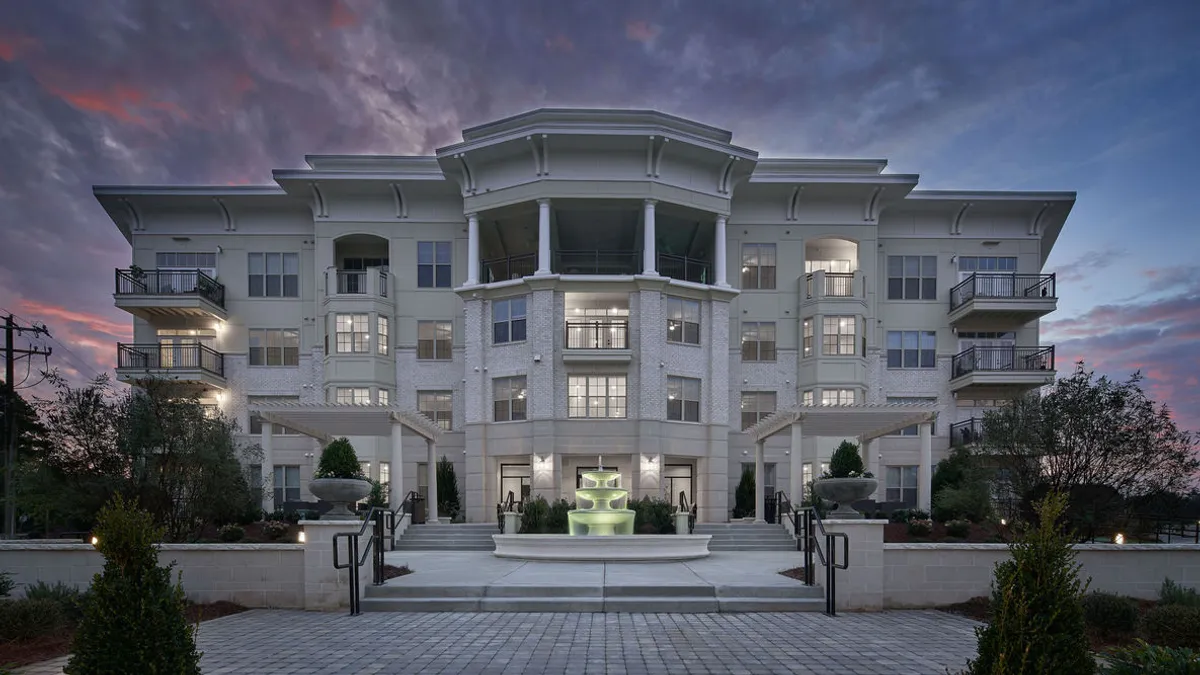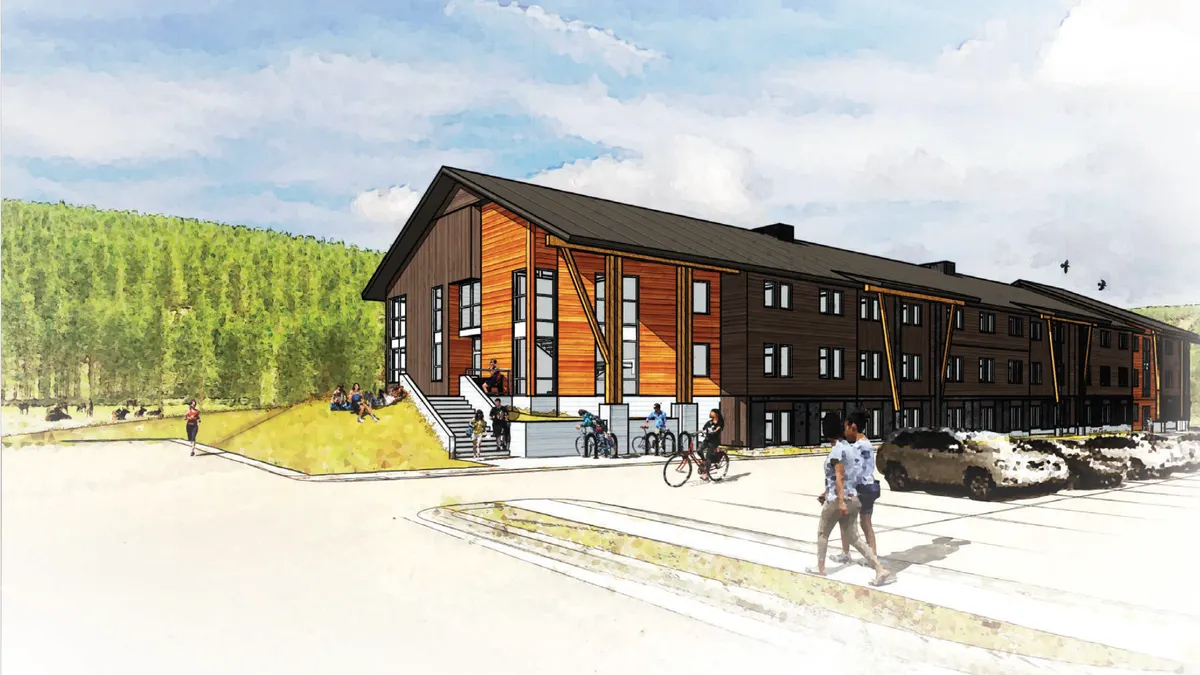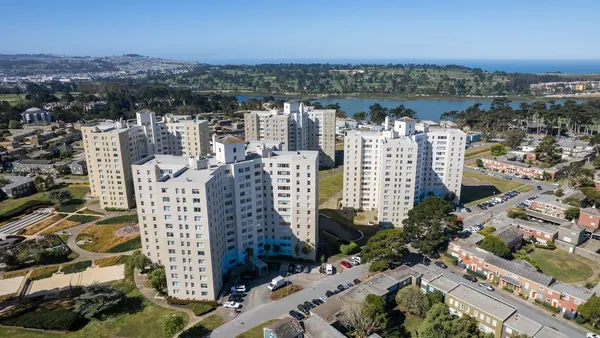RKW Residential has experienced astronomical growth since it was founded seven years ago, amassing 30,000 units. But to grow further, it needed a strategic partner.
Earlier this month, it found that partner when Alfred, the largest property-technology company in the U.S., bought RKW. Alfred not only gave the manager fuel for more growth, but also access to a strong technology platform, according to Marcie Williams, president of the Charlotte, North Carolina-based company.
"Increasingly renters expect a seamless experience fueled by technology that matches the rest of their lives," said Williams. "For RKW, leveraging the Alfred technology and resident support will create more value for clients and residents."
Even before the sale, RKW was enjoying success in its Southeastern markets, where it has properties like the Beverley Apartments in Charlotte (pictured above). Occupancies hit 96.2% in RKW's portfolio as lease trade outs hit 21.9% in early 2022. In areas like Florida, these new leases were bringing 40% to 50% increases, according to Williams. To put this growth in perspective, January is one of the weakest months for leasing in the apartment industry.
But this success also creates some challenges. Williams, who was kept on as president after the Alfred sale, spoke to Multifamily Dive before the sale about the competition for third-party managers to generate new business and keep employees in hot markets.
This interview has been edited for clarity and brevity.
MULTIFAMILY DIVE: What kind of interest are you seeing from ownership groups outside of the Southeast?
MARCIE WILLIAMS: There are groups that are coming in to tour properties from out of town that we've never heard of, and they've never heard of us. I work with our on-site teams to be able to get their information from the people that tour so we can introduce ourselves. If they do win the deal, I already have an introduction and have them understand our capabilities.
I just had a meeting today with a company out of Nebraska that wants to deploy capital in the South. We were referred by people as an expert in the market. We met with them and educated them on the market.
Do you see new property management groups moving into your Southeastern markets?
We absolutely have new people that are entering the market. And what's interesting is we’re seeing self performers who manage and own. They're managing themselves and they have no bench strength here. That's the challenge — how can they recruit and retain people when they have one property here? It's hard for them to be able to get the best talent. How you get the best talent is to offer the best things, be at the best properties and have support around you where you can give people time and attention.
There are definitely plenty of people coming into town. There is always competition within the management business, but it's about operating smart and being able to recruit the best.
What challenges does the strong transaction environment pose to managers like yourself?
Because the market is ripe to sell and cap rates are low, many of our owners are selling their assets. An owner-operator can come in and [buy the property] with no need for a third-party management company. But, at the same time, when we're doing a great job, and someone comes in that needs a third-party operator, most times we can stay in that community and still manage it.
How are you able to retain employees in this tight labor market?
We have been continuing to increase our benefits for our existing employees and our new employees to attract and retain people so we can continue to grow as an organization. We want to grow our people and we want to grow the organization. In order to grow the organization, we have to grow our people and make sure they're happy working here.
With the labor market being so tight, a lot of companies are centralizing property operations. How are you handling that issue?
We want to be able to give the prospects and residents what they want when they want it. For example, we want to be able to have the technology in place for them whether that's how they would get packages, how they would pay their rent or how they communicate with the office.
If they want to talk to somebody, we also want to be available and on site to take care of the residents and prospects. We have not gone to centralized leasing to leave the properties empty. But we have done a hybrid where we have been using artificial intelligence and automation to help with the leasing aspect. But we still have people in place to be able to help the residents who want to have a face-to-face connection.









